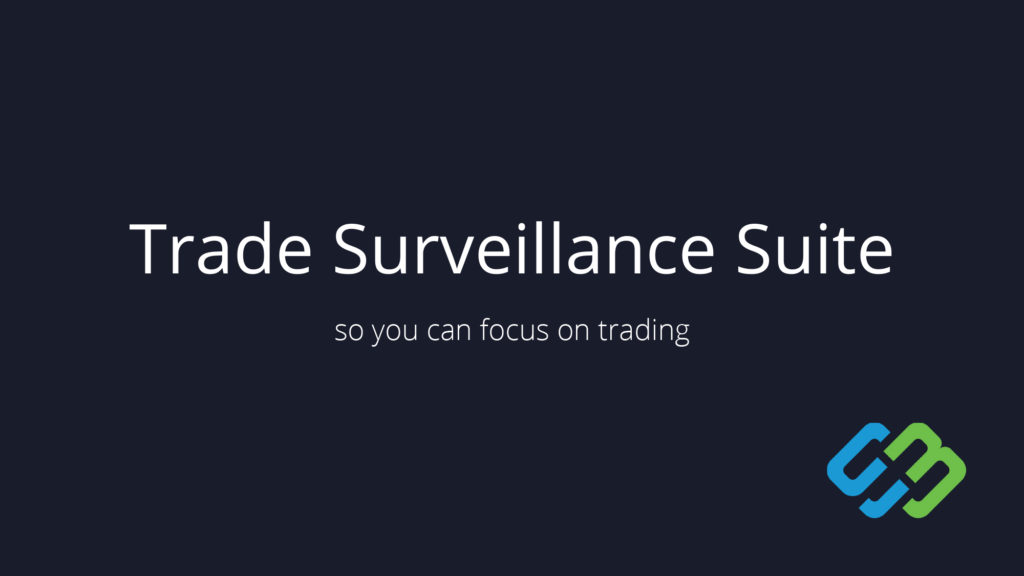Trade surveillance software allows you to monitor trading for a variety of restricted behaviors across multiple asset classes, configured to your specific supervisory requirements, and documented with an automated audit trail – all in a single dashboard.
Some available reports include:
Alert and rule parameters for each report are easily configured and tested, allowing you to build custom reports to suit your review processes. The audit trail function allows you to maintain a record of your exceptions management, with customizable comment fields that can be supervised across different teams and user groups.
Benefits of Trade Surveillance Software
With trade surveillance software from S3, you have the opportunity to automate your monitoring to meet the demands of mounting regulations, deter abusive trading habits, and mitigate threats found in your firm. You will also gain the following benefits:
- Meet regulatory requirements
- Monitor transactions and trading patterns
- Track both firm and employee trading
- Invest in surveillance now to save money later on regulatory fines
- Look for insider trading, spoofing, wash sales, and more
- Keep an eye on large or excessive trades
- Report and track trends
- Set your own parameters and create custom reports
Who Can Benefit From Trade Surveillance Software?
- US Brokers
- Canadian Brokers
- Global Trading Firms
- Mutual Funds
- Exchanges
- Buy and Sell Side
- Retail Banks
Anyone in the financial sector looking to be proactive in regulatory compliance can reap the above benefits provided by S3’s trade surveillance software.
Why Choose S3 For Your Trade Surveillance Needs?
S3 is an industry leader when it comes to trade surveillance software.
We have a top-notch team of expert financial market observers with in-depth industry knowledge, business analysts, information technology experts, and those with a long history of experience in all areas of real-time systems and trade data.
S3’s surveillance reports are all exception-based, meaning they flag any behavior that is outside the norm. Users can customize their report parameters to suit their expectations of “normal” behavior based on their policies and procedures. The reports can be saved and scheduled to be delivered directly to a user’s inbox for easy reviewing. The integrated audit trail tracks any flagged exceptions and responses.
Frequently Asked Questions
What is spoofing?
Spoofing is an attempt to move security prices by flooding the market with orders and then canceling before they can be fulfilled. The orders are initiated without any intention of seeing them filled.
What is painting the tape?
Painting the tape is when market participants attempt to influence the price of a security by buying and selling it among themselves to create the appearance of substantial trading activity. This form of market manipulation is an illegal practice used to create the illusion of an increased interest in a stock to drive prices higher.
What is Marking the Close?
Marking the Close is the practice of buying/selling a security at the very end of the trading day at a significantly higher/lower price than the current market price in an effort to raise the closing price of the security and make it appear more valuable than it actually is.
What is the Trade-through rule of Reg NMS?
A trade-through occurs when an order is executed at a worse price than the best price available at another trading center.
What is Reg SHO?
Regulation SHO is a set of rules from the SEC that establishes “locate” and “close-out” requirements to curtail naked short selling and failure to deliver.
What is equity-options manipulation?
Equity-options manipulation or “mini manipulation” involves the trading of an option’s underlying stock in order to profit from movements in the price of the option, or to affect the volatility of the option.
What are Wash Sales?
A wash sale is the sale of a security at a loss and the repurchase of substantially the same security shortly before or after in an effort to create a loss that would be a tax deduction.
What is Insider Trading / Large Move?
Insider trading is the trading of a company’s securities on the basis of material, nonpublic information about the security (e.g. buying securities prior to the announcement of unexpectedly high quarterly earnings).
TRF / ORF Order Marking?
Broker-dealers are required to mark sell orders in an equity security as either “long” or “short.”
Is the investment in trade surveillance really necessary?
Yes. There are regulations in place nearly everywhere around the world that make trade surveillance mandatory. By being proactive in your monitoring, you can protect yourself from the repercussions of letting any illegal or faulty trading practice slip by. This could save you big time in the future.
What happens if I choose not to invest in a trade surveillance system?
Due to the regulations in place and the push to enforce the integrity of the market, financial firms who engage in trading without a trade surveillance system are putting themselves at risk for consequences. The penalty may include permanent closure, hefty fines, and prison time.

